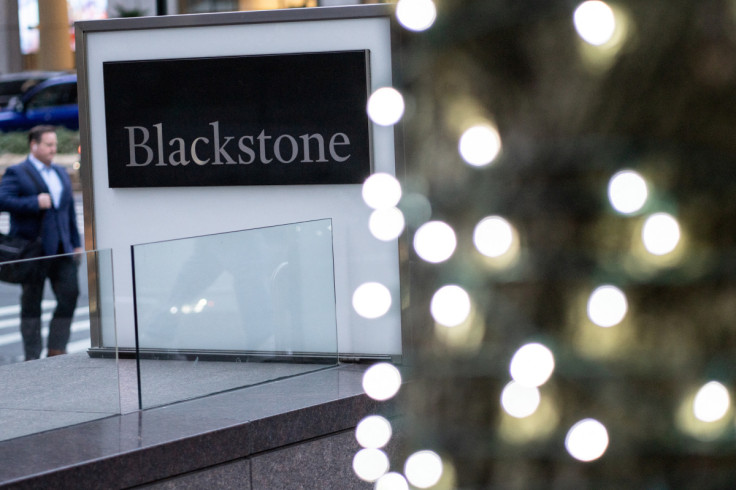'It's a Massive Red Flag': Possible Reasons Why Blackstone Allegedly Walked Away From TikTok Deal
As political risks mount and deadlines shift, Blackstone's reported exit from the TikTok deal reveals deeper concerns around cross-border tech divestments.

Private equity giant Blackstone has reportedly abandoned its pursuit of TikTok's US operations in a dramatic withdrawal that signals deepening concern over the most politically charged tech acquisition in US history.
The Wall Street titan's exit from the high-profile consortium pursuing a significant stake in TikTok's US business has sent shockwaves through Silicon Valley, leaving industry insiders questioning whether any major investor can navigate the treacherous waters of Sino-American tech politics.
Consortium Breakdown: What Was at Stake?
Susquehanna International Group and General Atlantic, existing investors in ByteDance, the parent company of TikTok, led the proposed consortium.
The group aimed to acquire an 80 per cent stake in TikTok's US business, leaving ByteDance with a minority interest. Blackstone had initially planned to take a minority interest in the bid.
Other members included KKR, Andreessen Horowitz, and Oracle, though their ongoing involvement remains unclear following Blackstone's exit.
Why Blackstone Pulled Out

Mounting Regulatory and Political Pressures
Sources suggest that Blackstone's decision was driven by adverse regulatory scrutiny and high-stakes donations in US-China trade tensions. The atmosphere surrounding the deal has become politically charged and unpredictable.
Deadline Extensions and Deal Delays
Initially faced with a January 19, 2025, divestment deadline, ByteDance gained extensions—first to April, then to September 17—via executive orders, complicating the timing and viability of any bid. Investors have reportedly grown wary amid the repeated shifts.
Resistance from Beijing
China reportedly resisted approval of the deal following the US's imposition of tariffs on Chinese imports. Without Beijing's backing, the transaction stalled.
Broader Trade & Security Context
The entire TikTok divestment is tied to broader US national security concerns, with lawmakers and regulators citing concerns about Chinese access to data. Although ByteDance denies any misuse, critics argue that ownership transfer is essential.
Blackstone's exit underscores the deal's complexity and highlights how private equity offers are influenced by global political tides, not merely commercial logic.
Next Steps After Blackstone's Withdrawal
Although Blackstone has stepped away, the rest of the consortium, including Oracle, Andreessen Horowitz and General Atlantic, appear poised to proceed with the bid, potentially redistributing Blackstone's intended share.
Meanwhile, ByteDance is reportedly working on developing a separate US-specific version of TikTok. This could form the basis for future divestment agreements and satisfy legal requirements.
Analyst Takeaways
Blackstone's Exit Signals Deepening Deal Risks
Analysts characterised Blackstone's withdrawal as a 'massive red flag', a signal to other investors of the deal's political and fiscal hazards. Complex vetting, geopolitical friction, and delayed deadlines now overshadow the original transaction logic.
Investor Exit Signals Shift in Strategy
Blackstone's reported exit from the TikTok US acquisition bid is less a sign of the platform's demise and more an indication that the nature of the solution is shifting. Mounting regulatory, political and fiscal hurdles have discouraged even the most seasoned institutional investors. As Navi Singh, a TikTok Agency Founder, put it: 'If you're waiting for TikTok to 'figure it out,' you're already screwed.'
Domestic Workaround Likely
Rather than risking a politically fraught ownership transfer, TikTok appears to be preparing a US-specific version of its app—same infrastructure, different legal wrapper. Such a workaround allows ByteDance to retain control of the platform's core engine while offering US regulators a cleaner, more localised framework. For everyday users and creators, the experience may remain unchanged, even if the app undergoes a rebranding or a shift in corporate structure.
Brand Survival Requires Creator Infrastructure
While investors debate stakes and sovereignty, marketers and brands are being urged to prepare for operational disruption. The creator economy that powers TikTok's commercial engine is unlikely to disappear overnight, but innovative brands aren't leaving anything to chance. Navi Singh emphasises the need to 'get every creator's email address. Today.'
The message is clear: treat the TikTok transition like any other business continuity challenge. Brands with direct creator relationships, contingency workflows, and robust communication channels will weather the storm. Those without such systems may find themselves locked out of a critical marketing ecosystem, even if the app itself looks unchanged.
Despite this setback, analysts say the consortium still has the means to move forward. However, policymakers, investors, and ByteDance will all be watching closely as the September deadline approaches.
© Copyright IBTimes 2025. All rights reserved.





















